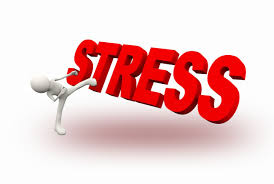Despite the fact that it might seem impossible, there are things you can do to reduce stress at work and at home and restore control.
The significance of stress management
Your overall health is at danger if you are under a lot of stress every day. Both your physical and mental well-being are negatively impacted by stress. Your capacity to think clearly, work well, and have fun is reduced. It could appear like there is nothing you can do to relieve tension. There will never be more hours in the day, the bills won’t stop flowing in, and your work and family obligations will always be demanding. However, you are much more in control than you might realize.
In order to be happier, healthier, and more productive, effective stress management enables you to release the grip that stress has on your life. The ultimate goal is to live a balanced life that includes time for work, relationships, relaxation, and fun—as well as the fortitude to withstand stress and face obstacles head-on. But there is no one solution for stress management. Experiment to determine what works best for you in this regard. You can achieve it by using the following suggestions for stress management.

Tip 1: Recognize the stressors in your life.
Finding the roots of your stress is the first step in managing it. This is more complicated than it seems. Finding the causes of persistent stress can be more challenging than identifying big stressors like job changes, relocation, or divorce. It’s all too simple to ignore the ways in which your own attitudes, sentiments, and actions affect your stress levels on a daily basis.
Even while you may be aware that you worry about work deadlines frequently, the stress may be be coming from your procrastination rather than the demands of your job.
Look attentively at your routines, outlook, and justifications to determine your true sources of stress:
- Despite being unable to recall the last time you took a break, do you rationalize stress as transient (“I just have a million things going on right now”)?
- Do you view stress as a necessary component of your personal or professional life (i.e., “things are usually busy around here”) or as a personality trait (i.e., “I have a lot of nervous energy, that’s all”)?
- Do you attribute your stress to other people or outside circumstances, or do you see it as completely typical and unremarkable?
Your level of stress will continue to be out of your control unless you take accountability for your part in causing or perpetuating it.
Tip 2: Put the 4 A’s of stress management into practice.
While your nervous system automatically reacts to stress, some stressors happen at predictable times, such as your commute to work, a meeting with your employer, or family gatherings. You can either alter the circumstance or alter your response when dealing with such predicted stressors. It’s useful to consider the four A’s while selecting which course of action to take in any given situation: avoid, adjust, adapt, or accept.
Avoiding a difficult situation that needs to be resolved is not good, but you might be amazed at how many stresses in your life you can get rid of.
Practice saying “no.” Know your boundaries and abide by them. Take on more than you can handle in both your personal and professional life to avoid stress. Separate the “shoulds” from the “musts,” and, if you can, avoid taking on too much, say “no.”

Avoid those who make you anxious. Reduce your time spent with that individual or break up with them if they frequently provide stress to your life.
Take charge of your surroundings. Turn off the TV if the evening news gives you the shakes. Take a longer, less-traveled route if traffic makes you anxious. Do your grocery shopping online if getting to the store is a pain.
Make a smaller to-do list. Examine your obligations, schedule, and everyday responsibilities. Put things that aren’t actually important at the bottom of the list or get rid of them altogether if you have too much on your plate.







